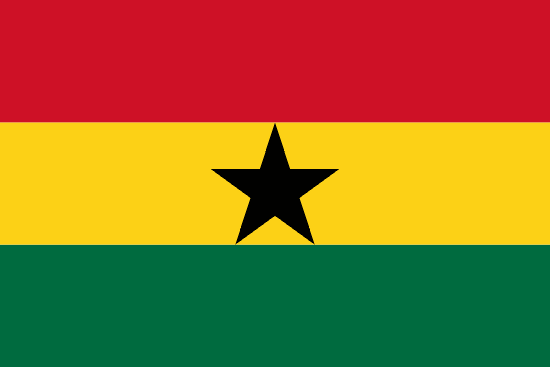"Adinkra aba fie | The Adinkra has come home"
About:
Accra, the capital of Ghana, was founded in the 15th century by the Ga people. It became a significant trading hub due to its location along the Atlantic slave trade route. The British made it the capital of the Gold Coast colony in 1877. After Ghana's independence in 1957, Accra remained the political and economic center. Today, it's a bustling metropolis with a diverse economy, rich cultural heritage, and significant challenges, including rapid urbanization and infrastructure development.
When to visit:
Accra, the vibrant capital city of Ghana, boasts a tropical savanna climate with distinct wet and dry seasons. For optimal weather conditions and fewer chances of experiencing heavy rains, it is recommended to visit Accra during the dry season, which typically occurs from November to March. During this time, you can expect warm temperatures, clear skies, and pleasant sea breezes along the city's stunning coastline. However, be prepared for increased tourist crowds and higher accommodation rates during this peak travel period.
When to avoid:
Traveling to Accra, Ghana during the rainy season, which typically falls between April and June and then again from September to November, may not be the most ideal time for a holiday. The heavy rainfall during these months can lead to flooding, road closures, and disrupted travel plans. Additionally, the high humidity and frequent downpours can make outdoor activities less enjoyable. It is advisable to check the weather forecast and plan your trip accordingly to avoid any potential travel disruptions during these periods.
"Rainy Season (Apr–Mid-Jul)"
In Accra, the wettest season is from April to mid-July. Average temperatures hover around 28°C (82°F) during this period. The city experiences heavy rainfall, often resulting in flooding. Cloud cover is significant, reducing sunlight hours. Despite the rain, humidity remains high, making the air feel heavy and damp. An average day for a visitor would involve navigating through intermittent showers, with the mornings usually being sunnier. The afternoons and evenings are typically cloudy with a higher chance of rainfall.
"Hot Season (November–March)"
In Accra, Ghana, the warmest part of the year is from November to April, during the dry season. Daytime temperatures typically range from 30°C to 35°C (86°F to 95°F). Rainfall is minimal during this period, with most days being sunny and dry. The sun can be intense, with an average of 6-7 hours of sunshine per day.
Humidity levels are relatively lower compared to the rainy season, but still can range from 65% to 85%. Cloudiness is also less frequent, with clear to partly cloudy skies being the norm.
A typical day for a visitor during this time would feel hot and dry, especially in the mid-afternoon when the sun is at its peak. The mornings and evenings are slightly cooler, offering a more comfortable climate. Despite the heat, the lower humidity levels make the warmth more bearable than in the rainy season. It's important for visitors to stay hydrated, wear sun protection, and try to stay in the shade during the hottest parts of the day.
Language:
In Accra, the capital city of Ghana, the most commonly spoken language is Akan, specifically the Twi dialect. English, as the official language of Ghana, is also widely spoken and used for business and governmental transactions. Additionally, Ga and Ewe are spoken by a significant number of residents.




